Gulbenkian Prize for Humanity helps fighting Covid-19 in Amazonia
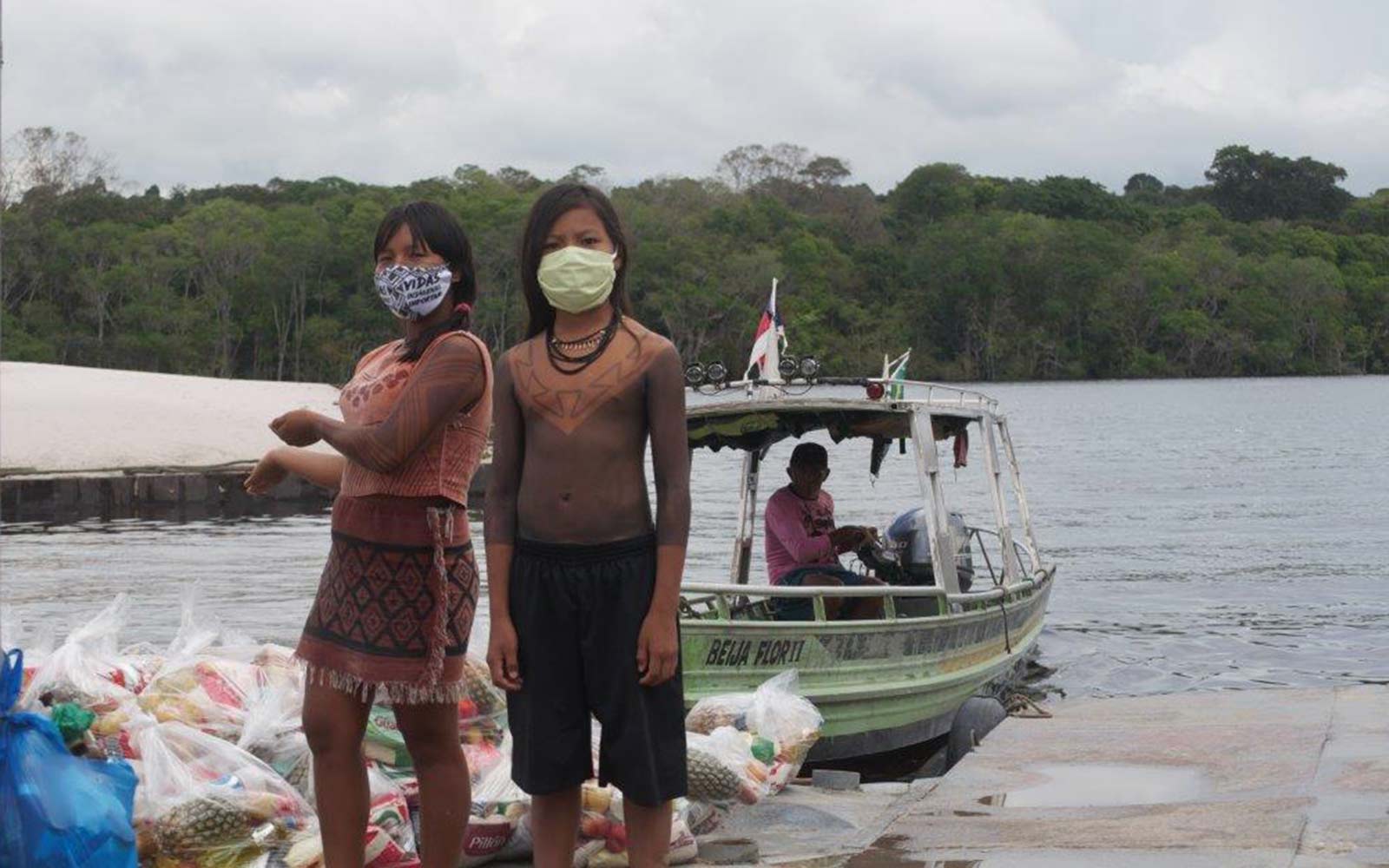
Abel Rodrigues is 20 years old, he has been living in Portugal for about two years and is a member of Fridays for Future Brasil, a part of the global climate movement created by Greta Thunberg. Abel is one of many young Brazilians who took part in the SOS Amazonia campaign started by Fridays for Future, which was among the first organizations awarded with a donation resulting from the amount attributed to Greta Thunberg as a winner of the Gulbenkian Prize for Humanity.
On the 20th of July, when she expressed her gratitude for the attribution of the Prize, the young Swedish activist also revealed that 200K Euros from the total amount (1M) would immediately go to the SOS Amazonia campaign and to the Stop Ecocide Foundation.
SOS Amazonia was created to help containing the effects of Covid-19 in the Brazilian Amazonia in a time when the situation was starting to become seriously worrying and there was a general fear for the quick and lethal spread of the disease. The campaign was also fuelled by a very energetic general mobilization for the will and the means to help the indigenous populations, many of these living in remote places and grouped in communities where social distancing is not an option and with no access to medical care and disinfecting materials. In order to raise the necessary funds, SOS created a crowdfunding campaign with the intent of getting medical care for these communities, but also food and other supplies like hygiene products such as alcohol-based hand sanitizers.
The overall spirit of the campaign, the enthusiasm and voluntarism of its members, as well as the efficiency of their action, were the main reasons behind Greta Thunberg’s decision to donate 10% of the amount of the Gulbenkian Prize for Humanity to SOS Amazonia.
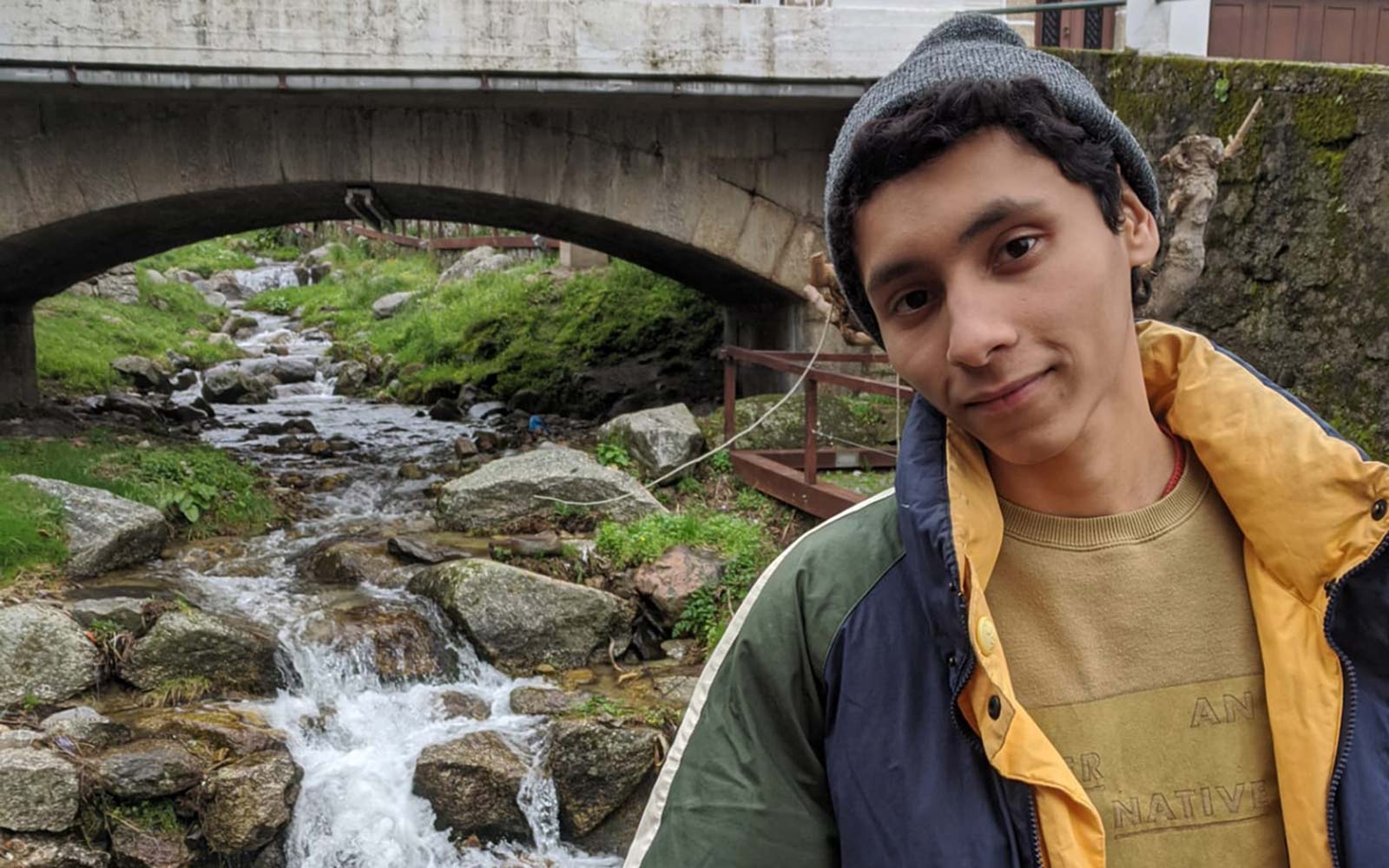
Unexpected support
Abel Rodrigues was forced to abandon his Law studies at the University of Lisbon due to the economic uncertainty Covid-19 brought upon his life. He tells us how it all started.
“When SOS Amazonia launched the crowdfunding campaign to raise money for the cause it released two presentation videos which included Greta Thunberg’s participation. The first one was made with the intent of raising awareness among European leaders and led to the donation of 3M Reais by the French president Emmanuel Macron and the German chancellor Angela Merkel to the city of Manaus. The second video appealed for everyone’s direct donation to the campaign”. This collaboration was an important media moment for the cause, but the team was far from imagining the true impact of this coming together. “When she won the Gulbenkian Prize for Humanity, Greta messaged me to announce the prize and also revealed her intention to donate 600K Reais to our cause”. Everyone was truly surprised and Abel Rodrigues is eager to reveal and express in his own words the team’s profound satisfaction. “The biggest reason for surprise was the amount of trust she had on a project entirely created and run by youngsters between the ages of 15 and 21. We were already tremendously happy with the 300K Reais we had put together through our platform, this big individual donation was unexpected to us.”
The next day, the team had a meeting with the members of the Greta Thunberg Foundation and it was decided that the money would be given to Fundação Amazonas Sustentável, the entity, says Abel, responsible for acting financially on behalf of the SOS Amazonia project.” The next step was to decide in the most transparent and efficient way how this resource was to be used”. All the data collected on the actions and their costs was put together and this information was then included in the project’s newsletter and sent to every donator. “Afterwards”, says the young activist “we got together with Fundação Amazonas Sustentável and with specialists in indigenous health and leaders of several communities to define the specific uses of that amount. We decided to use those resources to acquire the necessary equipment to implement telemedicine (which was already on our initial budget), hire more healthcare professionals and establish satellite connection to build a network to get these professionals in permanent contact.”. “Our idea”, assures Abel, “is to be able to keep the project going even after the sanitary crisis – we accomplished something which had an immediate impact and we want it to remain relevant in the future.”
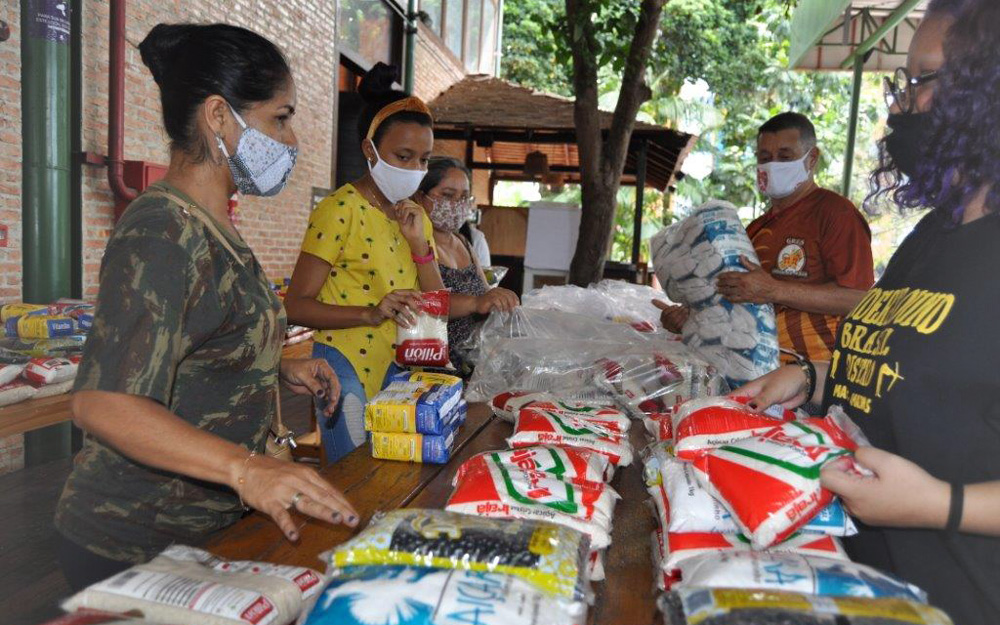
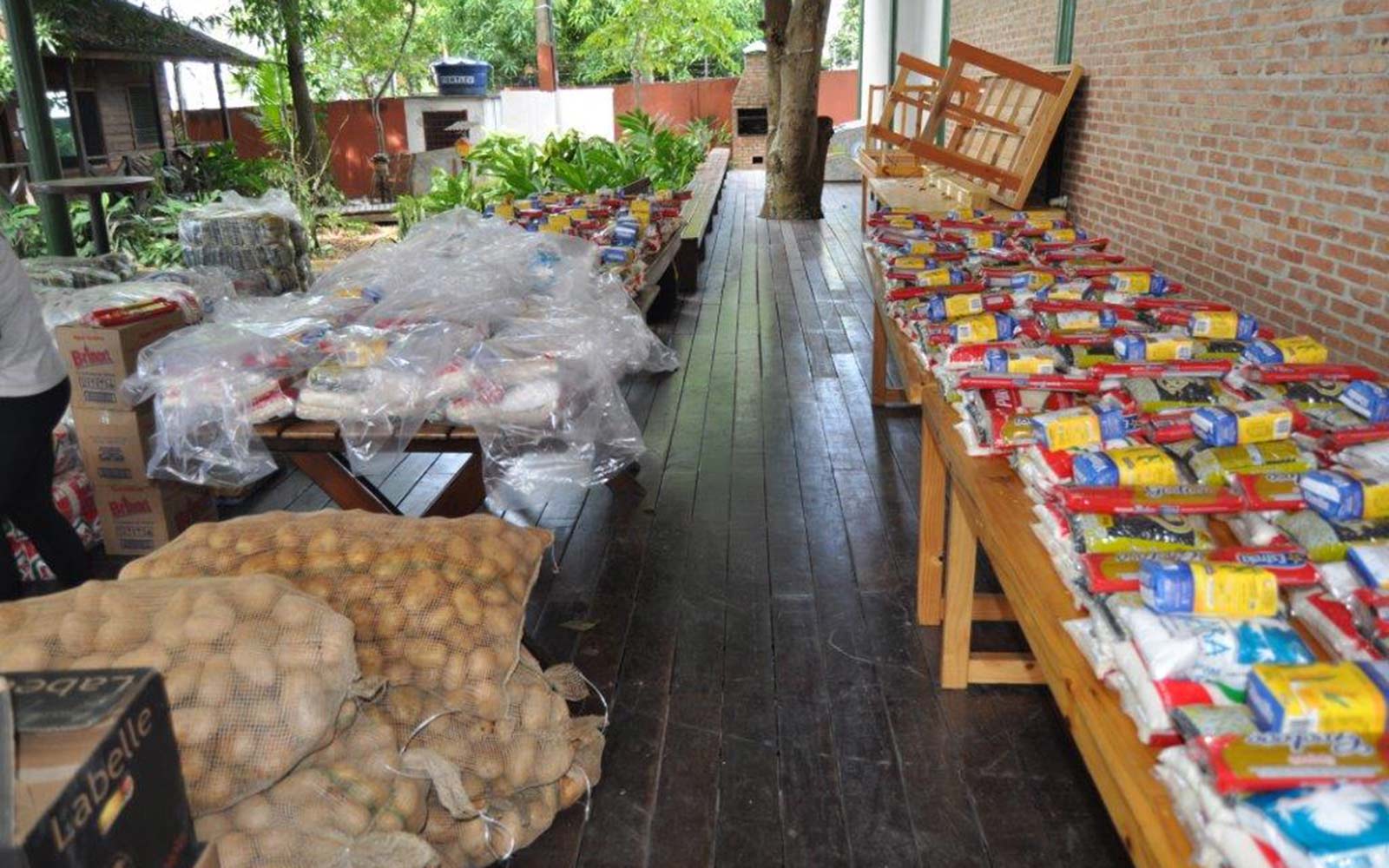
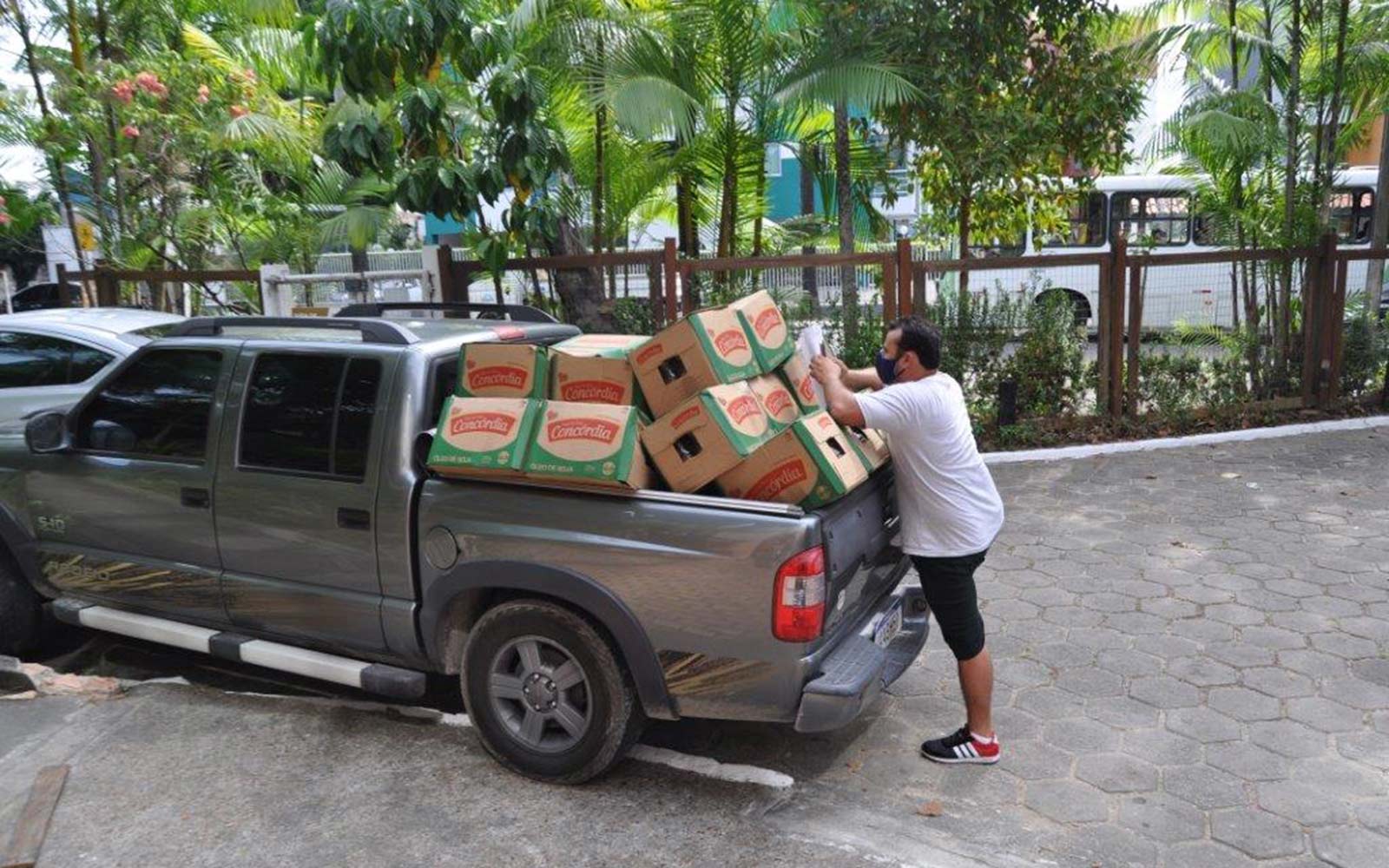
Food and hygiene baskets
The delivery of food and hygiene baskets was another one of the several actions where SOS Amazonia’s team efficiency proved to be key in cooperation with Fundação Amazonas Sustentável, the logistical partner of the campaign. In Manaus, there were no problems with the delivery of baskets and Abel Rodrigues rejoices over the fact: “We are very glad to help the local communities and contribute to the recovery of the healthcare system of Manaus. Our actions were able to stop many people from travelling in between the city and the interior and avoided unnecessary contaminations that would overload the public healthcare system. The city of Manaus is actually one of the few capitals of the country that shows a promising future in a post-pandemic world.”
Along the Amazon river, the logistics were a bit more complex, it was necessary to keep boats and gasoline flowing. “The fact that these communities inhabit remote places and the specific weather conditions of Amazonia (high levels of humidity and constant rain) forced us to acquire gasoline for transportation and to use plastic to cover all the card boxes containing the baskets.” This is a dilemma that can only be solved by embracing the notion of “climatic justice”. “We are a part of the School Strike for Climate here in Brazil and, naturally, we are against the use of fossil fuels and the unnecessary use of plastic” but in this situation there was no place for radicalism and social responsibility spoke louder: “The lives of these people are more important than the moral concepts behind choosing not to deliver the baskets in order not to use gasoline or letting the rain and humidity ruin these products while refusing to use plastic.”
Besides hygiene products, the baskets contained food according to the specific diet and needs of each community. In this way, the food supply of almost 6000 indigenous people was assured while avoiding travelling to cities during the pandemic.
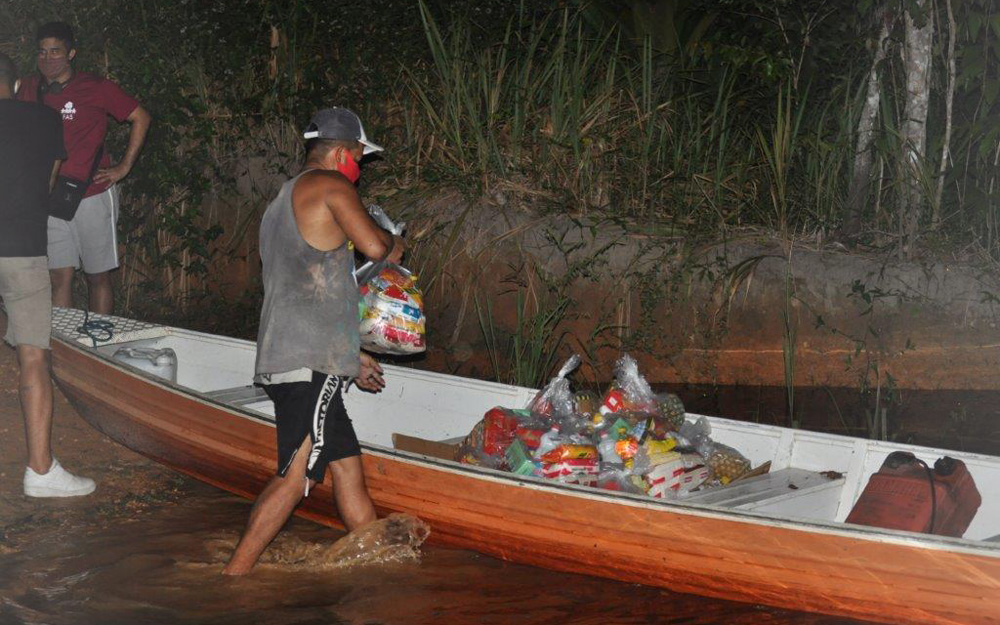
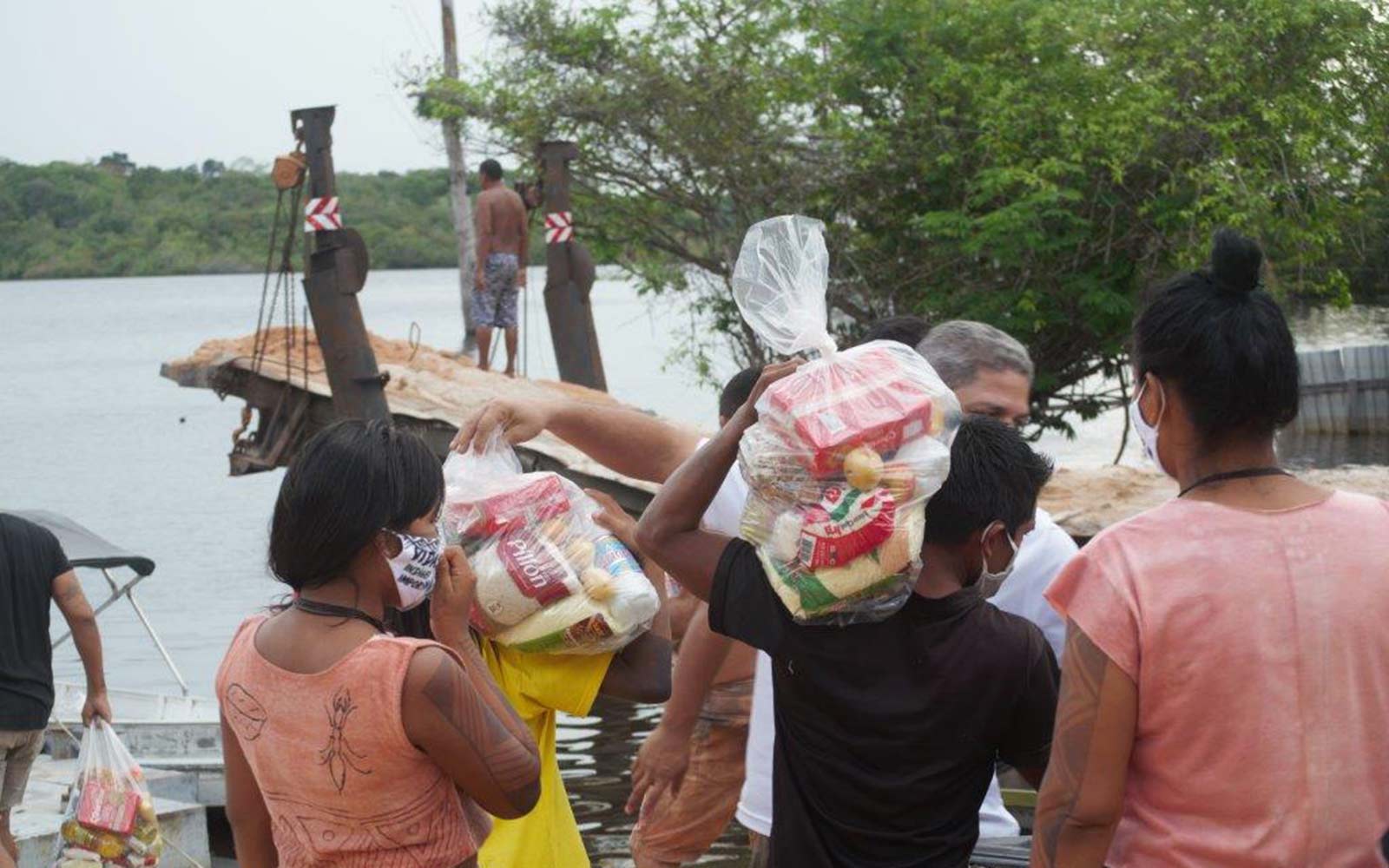
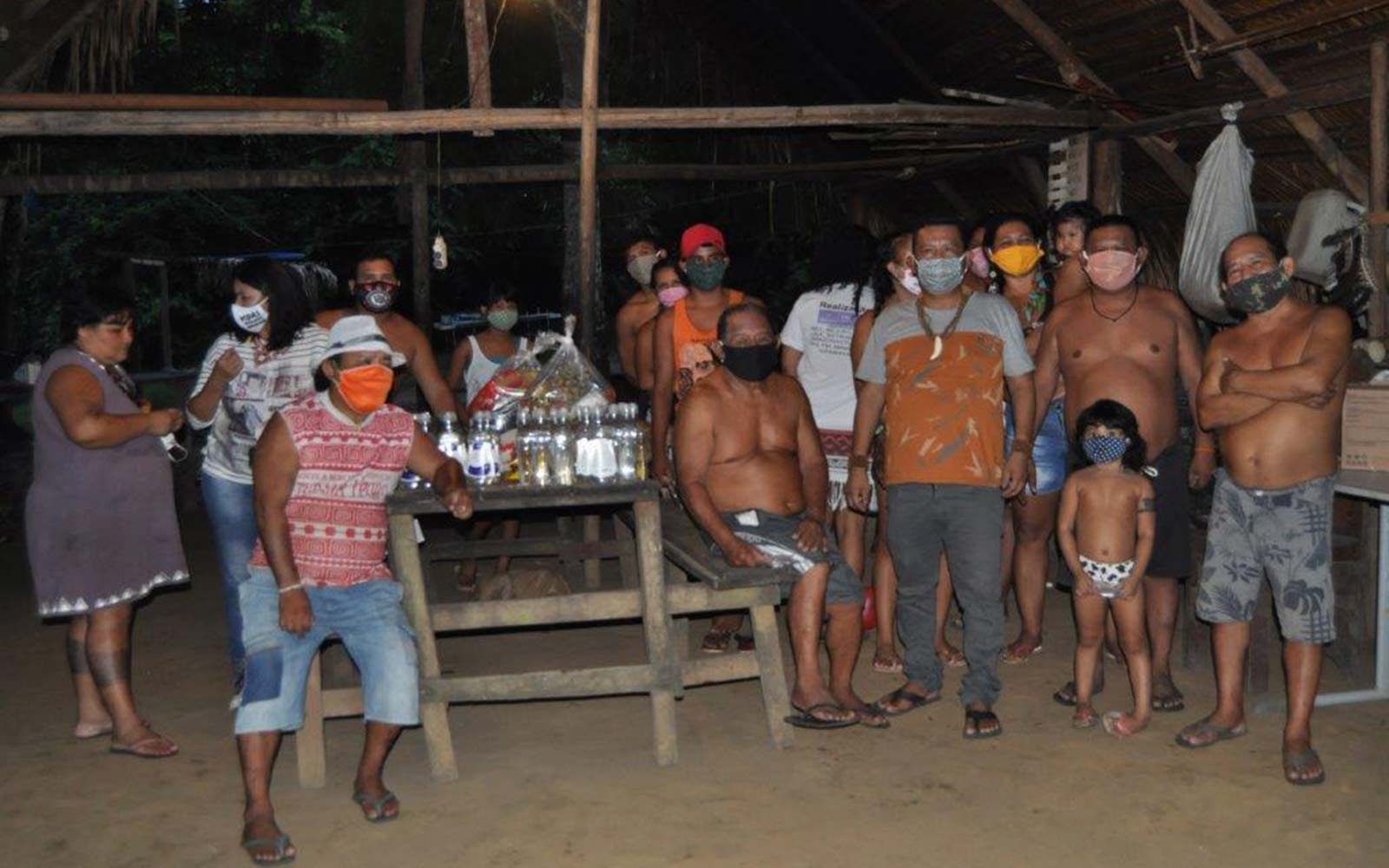
Show our support to those who protect the forest
The reality is preoccupying for indigenous populations who have been, for Abel, the “true guardians of the forest”. They were the ones who faced private economic interests and they are now dealing with a new threat in the form of a sanitary crisis. The website of the movement Articulação dos Povos Indígenas do Brasil, which accounts for the effects of the pandemics on these populations says that on January 21st 2021, a total of 46 355 people had been diagnosed with the infection. Among the 161 different communities affected by the spread of the virus there was a total of 928 deadly victims.
“It is very important to say that initiatives like SOS Amazonia are not an act of heroism but our simple obligation as activists to fight for those who defend more than 80 % of the biodiversity of our planet.”
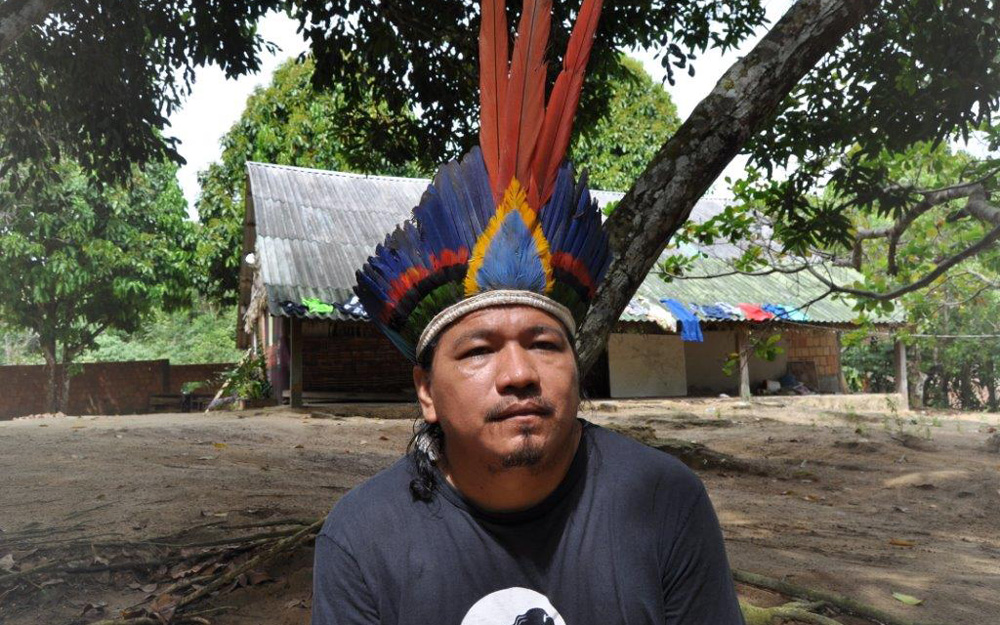
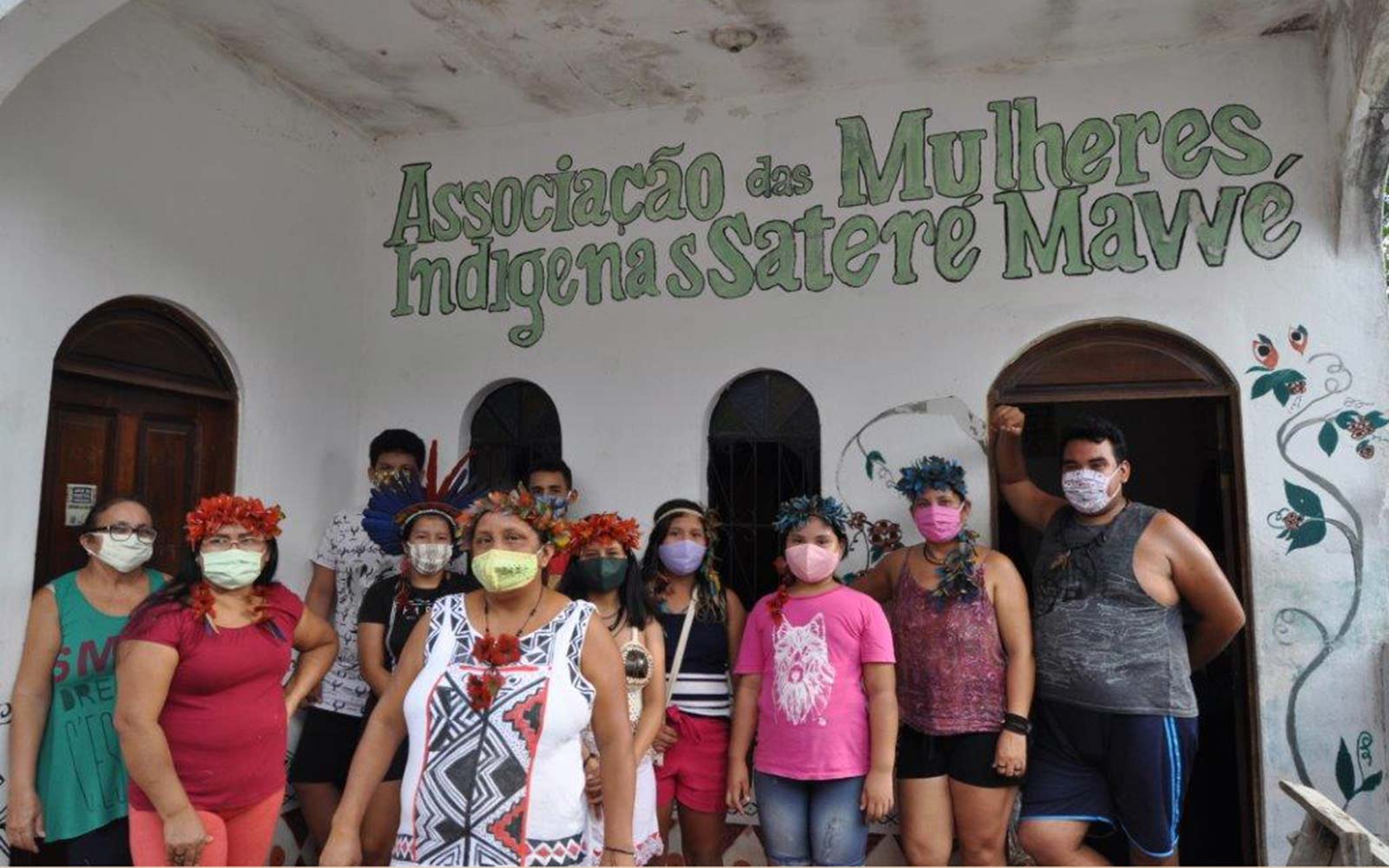
Despite all this, the group is aware that their actions are far from solutioning the drama lived by original communities of Brazil, it is an issue that demands “political will and a serious dialogue between the government and civil society”. This is something they do not foresee in a near future. “Unfortunately, the current Federal Government of Brazil will not fulfil its duty to protect the biodiversity of the country. It is not an overstatement or some form of radicalism when we say that our current president acts deliberately with the intention of harming these populations. This is particularly evident in his public speeches and direct attacks and insults to the original populations of Brazil”.
Hence the numerous alerts that attest his concerns: “Amazonia is the biggest rainforest on the planet, it is the home of a unique and unparalleled biodiversity. A treasure which is divided among nine countries (including the European Union if we consider the French Guiana) and is about to hit a point of no return and slowly begin to turn into a savanna. When that happens, the battle for climate change will be lost and every country will have to survive the consequences of such ecocide.”
Even while they face the challenges of a crisis that “can destroy life as we know it”, these young activists are tireless and never cease to appeal to others during their actions so that these populations “can pressure their governments to place the defence of Amazonia in the centre of international politics”, because, as they assure, “the responsibility to protect Amazonia does not belong to a sole government, it is a duty of every citizen of the world”.
More info
